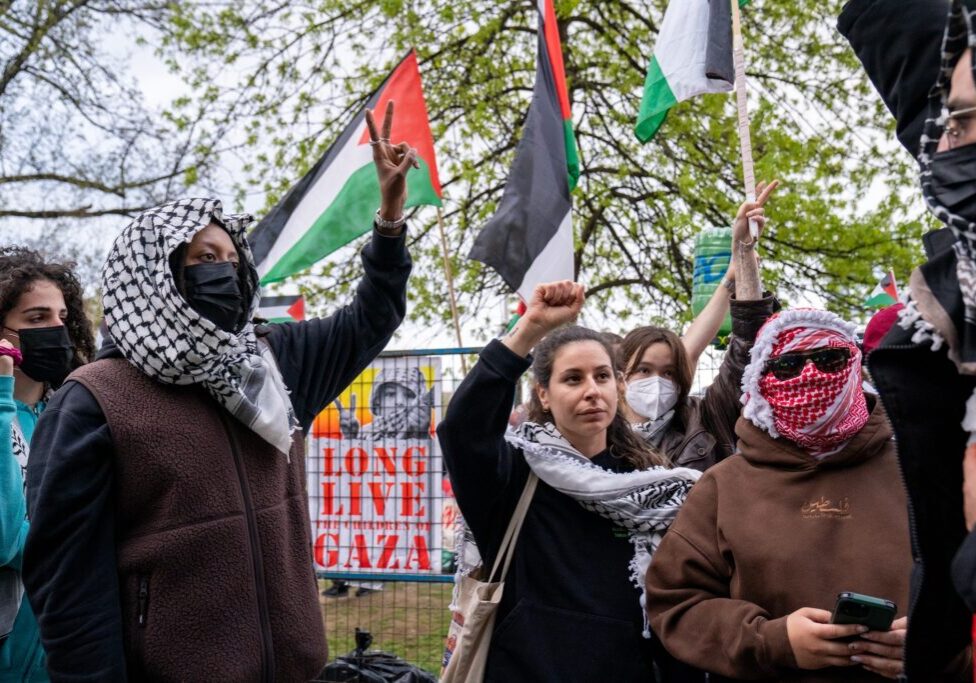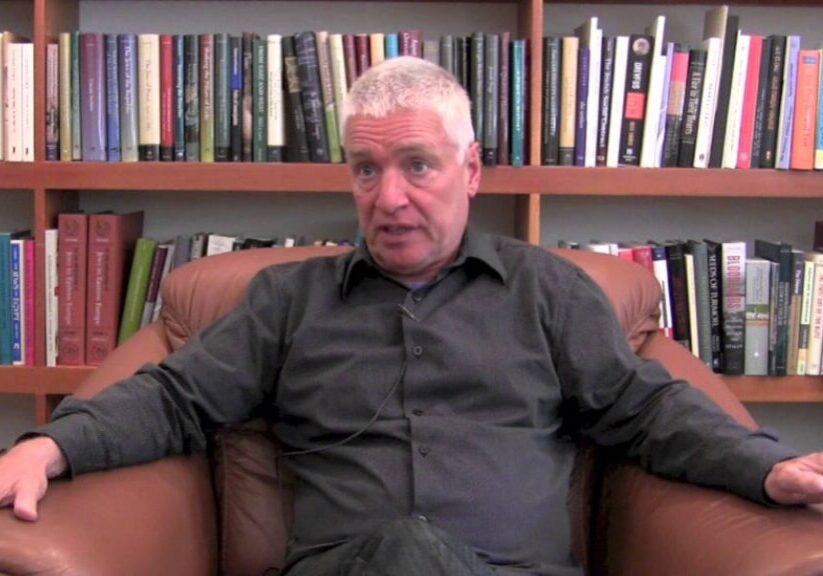Australia/Israel Review
Deconstruction Zone: The Hidden Meaning of Anti-Zionism
Jul 1, 2005 | Ted Lapkin
Ted Lapkin
The Hidden Meaning of Anti-Zionism
The crux of the Israeli—Palestinian conflict resides in the form of a simple question: does attempted genocide warrant reward or retribution?
In 1948, the Arabs chose conflict over compromise and embarked on an explicit war of annihilation against the Jewish community in Palestine. But this Arab attempt to abort Israel’s birth at bayonet-point met with failure, and during the ensuing conflict some 700,000 Palestinians were displaced from their towns and villages.
In historical terms, that outcome was not particularly unusual. The Treaty of Lausanne that ended the Greco-Turkish War of 1919-1923 mandated that 1.3 million Greeks must abandon their domiciles in present-day Turkey. The Potsdam Conference of 1945 attempted to sterilise the seeds of future ethnic conflict in Europe by authorising the expulsion of 10 million Germans from East Prussia. And over 800,000 Jews were forced to flee their homes throughout the Arab world after Israel’s creation in 1948.
From Poland to Pakistan, millions of people displaced by conflict during the 20th century were expected to accept their fate and build new lives in new locales. Of all these many war-induced refugee populations, the Palestinians were the only ones to demand a ‘right’ of return. This Palestinian ultimatum has attracted widespread support, particularly from a political Left for which anti-Israel sentiment has become an article of faith.
It is quite a curious phenomenon, this selective sense of outrage that maligns the Jewish state for things that do not merit minor criticism when routinely done by non-Jews. But let us put aside the obvious antisemitic implications of this argument and judge this claim on its factual merits.
While Palestinian advocates wax grandiloquent about the moral virtues of their ‘return’, they are much less forthcoming about the practical implications of such a plan. Yet one thing is certain: the influx of over four million Palestinians into Israel’s heartland would create a new demographic landscape in which Jews were relegated to minority status.
It remains to be seen whether a majority Arab bi-national Israeli/Palestinian state would sow the seeds of inter-ethnic comity rather than conflict. Anti-Zionist ideologues like globetrotting radical leftist Israeli academic Dr Uri Davis hasten to assure us that all would be well. On recent North American and Australian speaking tours, Davis painted an idyllic portrait of the peaceful coexistence that he predicted would reign supreme if only Israel’s Judaic character were eradicated.
But a more sober perusal of the Middle East’s past and present raises serious concerns about how ethnic and religious minorities fare in that region. As a matter of fact, violent Judeophobia has a long and ubiquitous tradition throughout the Arab world. From Mosul to Marrakesh, Jews were being slaughtered and synagogues were being burned long before the first glint of Zionist fervour appeared in Theodore Herzl’s eyes.
Even the medieval ‘golden age’ of Muslim-Jewish comity in Spain had a dark and seamy underside. In the year 1066, the Jewish community in the Islamic Spanish capital of Granada was wiped out during a pogrom fomented by Muslim clerics who feared that Jewish officials had accrued excessive power. When the Berber Almohads seized control of Muslim Spain a century later, Jews (and Christians) were offered the bleak choice of conversion or death.
Things did not improve with time. Eminent Middle East historian Bernard Lewis identified the latter 18th and entire 19th centuries as “the lowest point in the existence of the Jews in the Muslim lands.” Lewis quotes Englishman Charles McFarlane’s observations during a trip to Istanbul in 1828 that the Jews were: “the last and most degraded of the Turkish Rayahs, loaded with the concurrent and utter contempt of Frank, Turk and Armenian.”
And in the 21st century, the Baha’i of Iran, the Kurds of Syria and many Christian communities throughout the Middle East are currently being subjected to severe intimidation and persecution. Thus the patterns of history would not bode well for the fate of a rump Jewish population within a predominantly Arab Palestinian state.
Moreover, the Palestinian push to requisition a ‘right’ of return is categorically rejected by most Israeli Jews because it is considered tantamount to a demand for their national suicide. And for Israelis, their opposition to this Palestinian policy is rendered more absolute by the chronic dysfunction of the Arab society into which anti-Zionists desire the Jewish state to be subsumed.
The political tyranny and socio-economic stagnation that pervade the Islamic Middle East was recounted in depressing detail by the UN’s landmark Arab Human Development Report – 2002. The Report found: “out of seven world regions, the Arab countries had the lowest freedom score in the late 1990s.” And the picture on the gender equity front wasn’t any prettier. The UN Report revealed that: “women [in the Arab world] also suffer from unequal citizenship and legal entitlements, often evident in voting rights and legal codes.”
This dearth of political liberty and gender equality has wrought disastrous social and economic consequences for the Islamic Middle East. Illiteracy rates throughout the Arab world are much higher than in poorer non-Arab nations. And despite access to one of the world’s richest concentrations of natural resources, the GDP of all 22 Arab countries was lower than that of a single European nation — Spain.
By contrast, Israel is a progressive Western democracy in a global region that has hitherto been dominated by cultural backwardness and autocratic tyranny. Despite tremendous adversity, Israel has managed to build a first-world nation that combines the political values of liberty with cutting edge technological sophistication. It would be absurd to think that Israelis could ever be induced to hitch their wagon to the stalled locomotive that is Arab society.
Uri Davis and his anti-Zionist confreres wish to sacrifice the Jewish state on the altar of a utopian pipedream. But only the inhabitants of political cloud-cuckoo-land could believe that it would be desirable to destroy the Middle East’s sole established democracy in order to create another failed Arab state.
The Palestinian ‘right’ of return to Tel Aviv would serve as a monumental rebuff to the cause of human freedom, and constitute a Jewish catastrophe of historic proportions.
Ted Lapkin
Tags: Anti-Zionism






